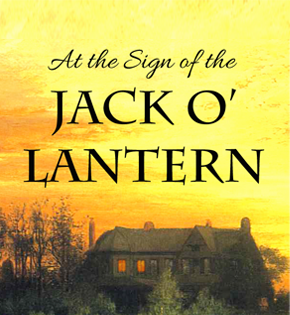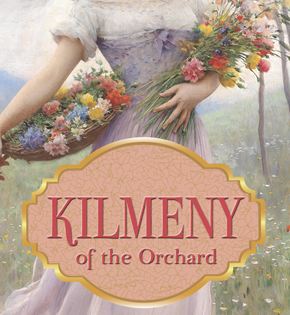

“My love for Linton is like the foliage in the woods: time will change it, I'm well aware, as winter changes the trees. My love for Heathcliff resembles the eternal rocks beneath: a source of little visible delight, but necessary. Nelly, I AM Heathcliff! He's always, always in my mind: not as a pleasure, any more than I am always a pleasure to myself, but as my own being.”
~ Cathy Earnshaw, Wuthering Heights
I’ve read Wuthering Heights many times, and this passage still raises the hair on the back of my neck. There is nothing soft or sweet about the love affair between Cathy and Heathcliff; the hint of malevolence in their selfish obsession with each other is gripping. Heathcliff is an abominable creature, yet Emily Bronte manages to make her readers pity him--no small feat, considering his numerous sins and diabolical nature. Cathy is heard-hearted, impossibly self-absorbed and capable of saying or doing anything to get what she wants, utterly devoid of self-awareness and almost conscienceless. These are powerful roles that any actor would dream of portraying. It comes as no surprise that the 1939 version was far too tame to convey the passion and depravity of this couple. The beautiful Merle Oberon and the even more beautiful Laurence Olivier won the coveted roles, and while they are wonderful to look at and they both have some good moments, the classic version ultimately falls short.
Merle Oberon is hampered by the histrionics and bizarre accents used by so many 1940s Hollywood actresses. Overacting and melodrama abound throughout her performance, but oddly enough, the most difficult scene in which she utters the quote that opens this article is actually her best. Oberon is truly superb during this speech. Special lighting was used to film her as she had been in an automobile accident that resulted in facial scarring, and the luminosity of her skin is a wonder to behold. This, coupled with her exotic Anglo-Indian heritage, her enormous eyes, and her slender frame all combine to truly make her a vision. Her acting in this scene is subtle with the setting providing much of the drama. The kitchen is dank and dull, the large windows behind her show the rain coming down in droves, and at the crucial moment when she announces “I am Heathcliff,” a flash of lightning highlights the supernatural quality of this statement and, indeed, the whole story. It is the finest moment of the film.
Laurence Olivier’s work as a stage actor overshadowed his film career at this point, and he was still not completely at ease on film, considering it to be a lesser medium. He had a penchant for hamming it up rather than trying for a more understated interpretation of the character. I love Olivier in many films, but he is simply no Heathcliff. He is far too refined in appearance, carriage, and accent to successfully embody such a brutish figure; to put it simply, he is too pretty. I see little to no chemistry between Oberon and Olivier, and apparently they didn’t like each other.
Conversely, Ralph Fiennes and Juliette Binoche are electric in the 1992 version of the story. It is not a perfect production--the music is very jarring and out of place and the sets far too grand. I envision Wuthering Heights to be more modest than the gargantuan house used with ridiculously high, vaulted ceilings and turrets. But the chemistry between Binoche and Fiennes is intense. He is the brooding embodiment of Bronte’s dreams, and she is perfect as the often cruel, heartless Cathy. This film portrays the carnal nature of their relationship that the novel heavily implies, showcasing their rebellious disregard for society and its conventions. It successfully conveys that Cathy’s capitulation to the outside world and her desire to be accepted by the Lintons and the village at large was a deep betrayal of all that her love with Heathcliff represented.
“You teach me now how cruel you've been--cruel and false. WHY did you despise me? WHY did you betray your own heart, Cathy? . . . You loved me--then what RIGHT had you to leave me? What right--answer me--for the poor fancy you felt for Linton? Because misery and degradation, and death, and nothing that God or Satan could inflict would have parted us, YOU, of your own will, did it. I have not broken your heart--YOU have broken it; and in breaking it, you have broken mine . . .”
The original is worth watching simply because it is a wonderful example of the Golden Age of Hollywood cinema, but if you are looking for a version that attempts to be more accurate to its source, I don’t think you can do better than the 1992 version. This book has been filmed many times, but it is the best attempt I’ve seen so far. Granted, it is a difficult book to bring to the screen as it begins when our main protagonists are children, so there is the problem of either having adults play roles too young for them or finding suitable children to play these reckless, wild creatures. Fiennes and Binoche are a bit old for their parts, but the passion and earthiness they bring to the table makes this relatively unimportant.
POSTED BY: L.R. Blizzard
































